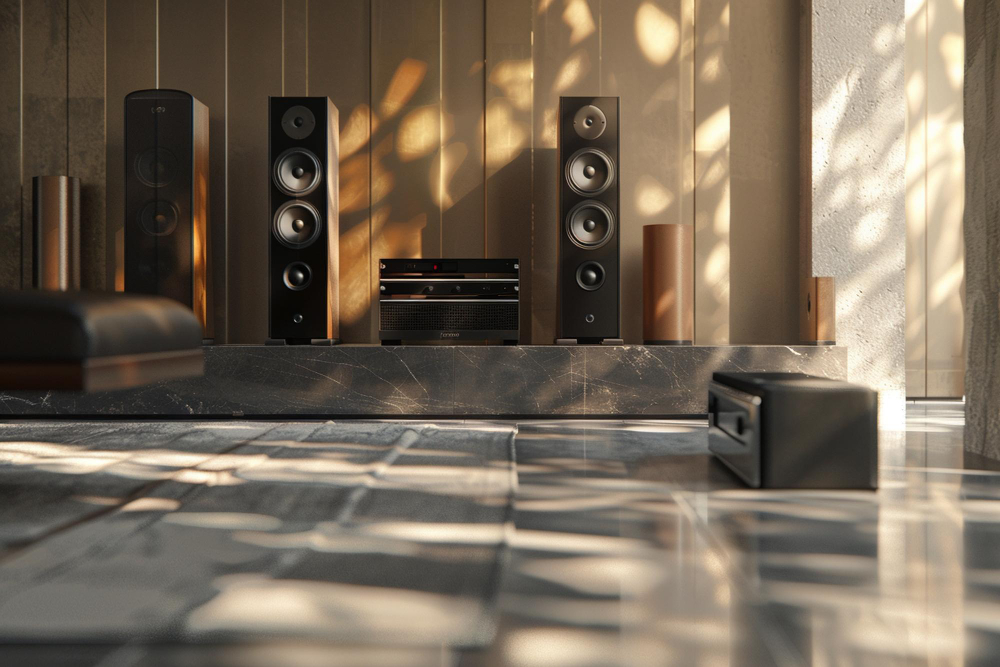Setting Up a Simple Sound Reinforcement System

A sound reinforcement system can make or break an event, whether it's a live concert, a corporate presentation, or a community gathering. This guide will walk you through the essentials of setting up a simple sound reinforcement system. For those in Central Florida, we've also included an option for expert consultation to ensure your setup is perfect.
What is a Sound Reinforcement System?
First, let's clarify what a sound reinforcement system is. Essentially, it's a combination of microphones, amplifiers, and loudspeakers used to enhance and distribute sound to a larger audience. Unlike public address systems, which are often used in more controlled environments, sound reinforcement systems are typically employed in live settings where sound quality is crucial.
Why Sound Reinforcement is Important
For any event, ensuring that speech and music are heard clearly is essential for engagement and enjoyment. A sound reinforcement system:
- Amplifies sound for large audiences,
- Balances sound across a venue,
- Delivers high-quality audio, and
- Reduces noise and distortion.
Whether you're hosting an outdoor festival in Central Florida or a business seminar, a competent sound system is a must.
Essential Components of a Sound Reinforcement System
Creating an effective sound reinforcement setup involves several key components:
1. Microphones
Microphones capture sound at its source. The choice of microphones—whether dynamic, condenser, or ribbon—affects sound quality. Dynamic microphones are durable and versatile, ideal for vocals and instruments in live settings. Condenser microphones, on the other hand, offer greater sensitivity and are excellent for capturing subtle details, making them suitable for indoor events with controlled sound environments.
2. Mixers
Mixers are the control centers of your sound system, manipulating the audio signals from microphones and other inputs. They allow you to balance audio levels, apply effects, and route audio to different outputs. For simple setups, a compact mixer with basic EQ controls and enough input channels to accommodate your needs will suffice.
3. Amplifiers
Amplifiers boost the audio signals from the mixer to a level capable of driving the loudspeakers. When choosing amplifiers, consider the power requirements of your speakers to ensure sufficient volume without distortion. Look for amplifiers with protection features to safeguard your equipment against power surges and overheating.
4. Loudspeakers
Loudspeakers project the amplified sound to the audience. There are two main types:
- Passive Speakers require external amplifiers and are versatile for different setups.
- Active Speakers come with built-in amplifiers, simplifying setup and reducing the need for additional cables.
5. Cables and Connectors
Quality cables and connectors are essential for reliable sound transmission. Invest in durable, low-resistance cables to minimize signal loss and interference. Keep spares on hand and regularly inspect for wear and tear to avoid unexpected disruptions.
Setting Up Your Sound Reinforcement System
Step 1: Assess the Venue
Understanding the venue's acoustics is the first step in setting up your sound system. Consider:
- Size and shape of the space
- Acoustical properties (e.g., reflective surfaces)
- Potential sources of noise interference
Step 2: Position Your Equipment
Strategically place speakers to cover the entire audience area without creating dead spots. Avoid placing microphones directly in front of speakers to reduce feedback. Utilize stands and mounts to position equipment effectively.
Step 3: Connect and Test Equipment
Use quality cables to connect your microphones, mixer, amplifier, and speakers. Test each component individually, then as a whole. Check for feedback, and adjust equalization to ensure clarity and balance.
Step 4: Sound Check
Perform a thorough sound check before the event. Test all microphones and channels, and walk around the venue to detect any audio imbalances. Make necessary adjustments to volume levels and EQ settings.
Troubleshooting Common Issues
Even the best setups can encounter issues. Here’s how to address common problems:
Feedback
Feedback is often caused by microphones picking up sound from speakers. To reduce feedback:
- Position microphones away from speakers
- Lower microphone gain
- Use directional microphones
Distortion
Distorted sound typically arises from overloading the mixer or amplifier. Prevent distortion by:
- Keeping levels below the red zone on meters
- Using compressors to manage dynamic range
Signal Loss
Signal loss can occur due to faulty cables or poor connections. Regularly inspect and maintain cables, and ensure all connections are secure.
Partner with Experts in Central Florida
Setting up a sound reinforcement system can be intimidating, especially for those without technical expertise. If you're planning to install sound reinforcement systems in Central Florida, contact Axiom Integration today to get your free quote. Our team of professionals provides tailored solutions to meet your specific needs, ensuring top-notch sound quality for any event.
Conclusion
A simple sound reinforcement system is vital for any event seeking to captivate an audience through clear and balanced audio. By selecting the right components, positioning equipment wisely, and conducting thorough tests, you can transform your event's audio experience. For those in Central Florida, partnering with experts like Axiom Integration can take your sound setup to the next level, offering peace of mind and exceptional results.